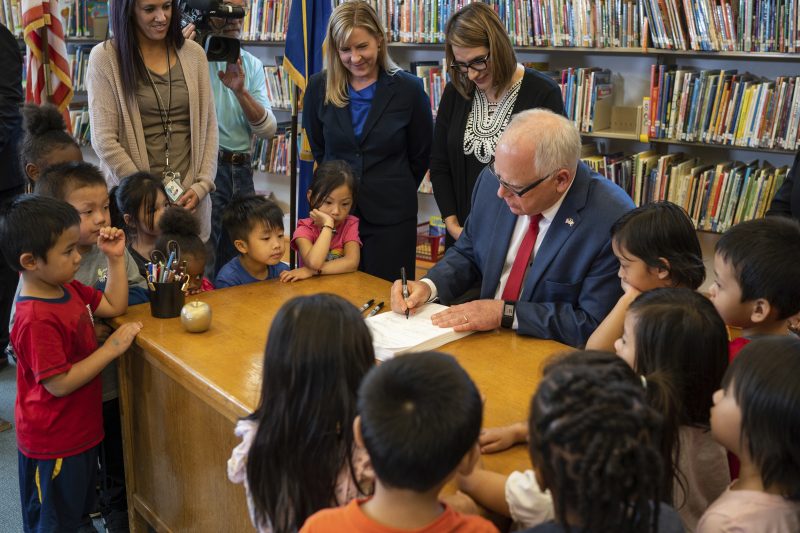In a move that has sparked debate and controversy in Minnesota’s education system, Governor Tim Walz has been accused of shifting schools to the left by opposing school vouchers while advocating for increased funding for public schools. This decision has drawn mixed reactions from various stakeholders, with proponents lauding the governor’s commitment to public education, while critics argue that his policies are ideologically driven and could have negative implications for students and families.
One of the key points of contention is Governor Walz’s opposition to school vouchers, which are government-funded scholarships that allow students to attend private schools. Proponents of school vouchers argue that they provide parents with more educational choices and promote competition among schools, leading to improved academic outcomes. However, opponents, including Governor Walz, believe that school vouchers drain resources from public schools, exacerbating educational inequalities and segregation.
By taking a firm stance against school vouchers, Governor Walz has positioned himself as a champion of public education and an advocate for equal access to quality schooling for all students. His administration has focused on increasing funding for public schools, aiming to address disparities in resources and opportunities among different school districts. While this approach is lauded by many educators and education advocates, critics argue that simply increasing funding is not enough to address the root causes of educational inequities.
Another aspect of Governor Walz’s education policy that has sparked debate is his support for progressive curriculum changes, including efforts to promote diversity, equity, and inclusion in schools. This includes initiatives aimed at addressing racial disparities in academic achievement, providing culturally responsive teaching practices, and integrating social justice themes into the curriculum. While these efforts are seen as important steps towards a more inclusive educational system, they have faced pushback from some who see them as an attempt to indoctrinate students with a particular ideological agenda.
Overall, Governor Tim Walz’s approach to education in Minnesota reflects a broader national debate about the role of government in shaping educational policies. By opposing school vouchers and advocating for increased funding for public schools, the governor has positioned himself as a progressive leader committed to promoting equitable access to quality education. However, the contentious nature of these policies highlights the complex challenges involved in reforming and improving the education system to ensure that all students have the opportunity to succeed and thrive.

